Ten must-read novels by U.S. Hispanic authors that you will love
Over the last half-century, authors of Hispanic descent have contributed some classics to American literature with well-known titles

Over the last half-century, authors of Hispanic descent have contributed some classics to American literature with well-known titles such as The House on Mango Street by Sandra Cisneros, How the Garcia Girls Lost Their Accents by Julia Álvarez, Dreaming in Cuba by Cristina García, The Mambo Kings Play Songs of Love by Oscar Hijuelos or The Brief Wondrous Life of Oscar Wao by Junot Díaz—these last two winners of the prestigious Pulitzer Prize for Fiction in 1990 and 2008 respectively. However, here we share some perhaps less known high-quality, innovative works of fiction by authors based or born in the U.S. that go beyond the immigrant cultural clash or minority experience, and delve deep into the realm of universal literature.
1) The Doorman, by Reinaldo Arenas (Grove Weidenfeld, New York, 1994)
Called a ‘force of nature’ by José Lezama Lima and a ‘disturbing writer, a traitor to silence’ by Michael Wood, Cuban novelist and poet Reinaldo Arenas is best known for his posthumous published autobiography Before Night Falls, made into a major motion picture directed by Julian Schnabel with Javier Bardem portraying Arenas in the leading role — a remarkable performance that earned him an Oscar nomination for Best Actor in a Leading Role in 2000, the first for a Spaniard. Despite his turbulent and relatively short life in which he suffered imprisonment and exile, Arenas penned a solid body of work which includes his Pentagonía (Penta-agony), a series of five novels that revolve around ‘an author, a witness, who dies but in the next novel is reborn under a different name yet with the same angry rebellious goal: to chant or recount the horror and the life of the people, including his own. There thus remains, in the midst of a terrible, tempestuous time, a life raft, a ship of hope, the intransigence of man, the creator, the poet, the rebel — standing firm before all those repressive principals which, if they could, would destroy him utterly — one of those principals being the horror that he himself exudes,” as Arenas wrote in the foreword to The Color of Summer. The Doorman — written in New York between 1984 and 1986 and his first work set in the United States — is not part of his main literary works. Still, it’s a delicious diversion worth noting that can be read in a blink. Dedicated to his friend Lázaro Gómez Carriles and loosely based on Carriles’s own experience as a doorman in a building in Manhattan — a character portrayed by Olivier Martinez in Before Night Falls — The Doorman is a beautiful fable, at times absurd and hallucinating, about the pursuit of happiness and the ordinary life, and a witty radiography of the human zoo of eccentricities.
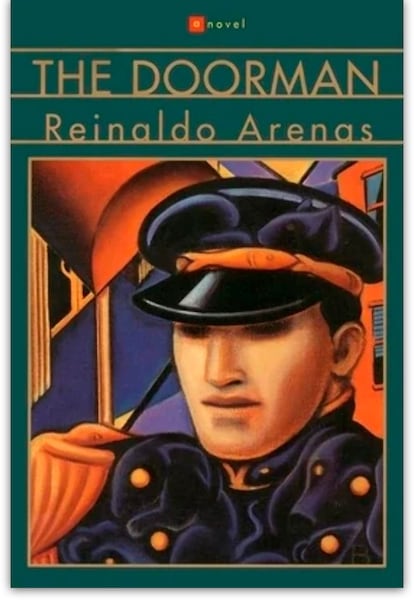
2) The Night Travelers, by Armando Lucas Correa (Atria Books, 2023)
The third and last installment of his trilogy — which started with the international bestseller The German Girl — begins with the birth of Lilith, a mixed-race girl or mischling, as they were called in Nazi Germany, and tells the story of four generations of strong women that even in the most terrifying situations draw strength to follow their paths in life. Correa’s historical fiction, highly praised for his extraordinary and complex female characters, is very indebted to his dramaturgy studies and lifelong journalism career. His narrative style uses efficient playwriting techniques to describe characters and settings, endowing the plot with great agility. Correa’s plots are, in a nutshell, journalistic investigations. The Night Travelers is a captivating, heartrending story, efficiently developed at a cinematic pace, that drags you inside the plot from the first line. Correa is among the few Cuban writers who produce a work of universal interest in a league of his own, very far from the endogamic process — superfluous, over-ambitious, and crammed with very local topics that is the Cuban literature nowadays. Besides its exciting plot, The Night Travelers deals with relevant and controversial hot issues, from the similarities between leftist and right-wing totalitarian states, political intolerance, structural racism, racial equality, and the duality of the human being. About this book, The New York Times Book Review said: ‘Correa’s prose is atmospheric, but what’s most fascinating about this novel is his portrayal of terrified yet strong female characters who anticipate future trials and methodically work through them.’
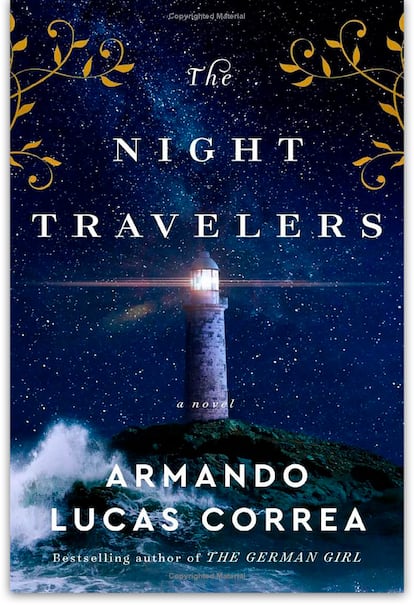
3) How Not to Drown in a Glass of Water, by Angie Cruz (Flatiron Books, 2022)
The fourth novel by the author of Soledad (2001), Let It Rain Coffee (2005), and Dominicana (2019) is her most ambitious and complex yet. Her previous novel, Dominicana, is a coming-of-age story exploring a newlywed teen immigrant’s ambiguous and formative challenge. But with How Not to Drown in a Glass of Water, Cruz moves to the other side of the narrative spectrum, giving voice to Cara Romero, a 56-year-old immigrant who came to the United States 27 years ago escaping from a blah marriage and an extramarital sling, and who has been unemployed for almost two years after the factory where she worked closed in 2007 during the Great Recession and moved to Costa Rica. Over twelve sessions with her job counselor and some form fillings, Cara tells (in the first person) her sometimes hilarious and always touching story of survival, vulnerability, resilience, and hope at an age where most women live transcendental changes.
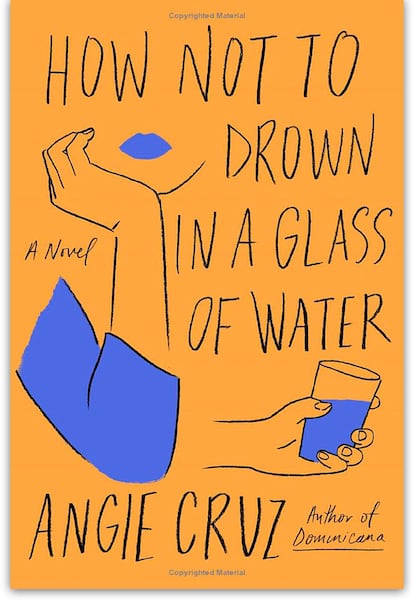
4) The President and the Frog, by Carolina de Robertis (Knopf, 2021)
‘Once upon a time, in a near-forgotten country, on a certain mid-November afternoon, an old man sat at his kitchen table in his ramshackle home (…) as if he were a normal man.’ De Robertis’ fifth novel — The Pen/Faulkner Award 2022 finalist and Pen/Jean Stein Award 2022 finalist — opens with a magical and promising sentence that has not lost the ability to seduce readers for centuries. We have to accept that there is no more suitable beginning for a novel inspired by the life of Uruguay’s legendary ex-president José Mujica, a statesman who built a legend as a gifted talker and storyteller. Although Mujica is never mentioned by name — a license that allows De Robertis to mix reality and fabulation — the narrative revolves around the life of the ‘so-called Poorest President in the World’ since his imprisonment in the 1970s, focusing on what the author considers a ‘unique gift and his inheritance [that] made him what he was,’ especially for someone ‘born to a nation of talkers, a nation where you stopped by for a minute and stayed for hours, chatting over wine or whiskey or yerba mate. Conversation threads and weaves the world.’ So well narrated that you can feel the breeze of the austral spring.
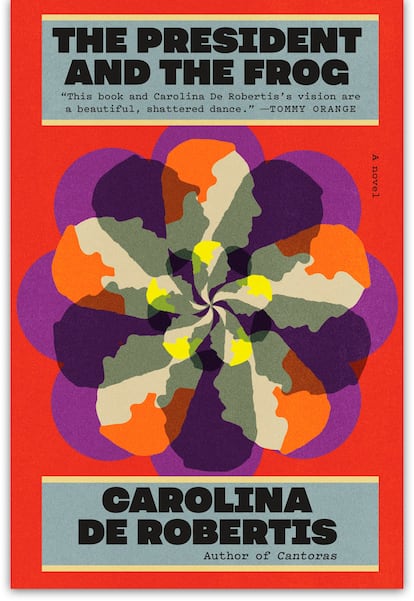
5) Trust, by Hernan Diaz (Riverhead Books, 2022)
The winner of the Pulitzer Prize for Fiction 2023 is Diaz’s second novel and comes with an accolade of awards such as the 2022 Kirkus Prize, was longlisted for the 2022 Booker Prize, and was named one of the 10 Best Books of 2022 by The New York Times, The Washington Post, NPR and Time magazine. Born in Buenos Aires, Argentina, in 1973, Diaz is undoubtedly one of the greatest fiction writers of this century. His debut novel, In the Distance (Coffee House Press, 2017), the story of Håkan, a young Swedish immigrant struggling in the American West on his way to New York to meet his brother, won the William Saroyan International Prize and was also a finalist for the Pulitzer Prize and the PEN/Faulkner Award in 2018. Described by The New York Times as ‘intricate, cunning, and consistently surprising,´ Trust is a masterful literary puzzle, a narrative tour de force and a literary palimpsest comprised of four fictitious books within, some of them like Trust playing with a financial double meaning; Bonds, by a Harold Vanner; the autobiography My Life, an unfinished manuscript written by investor Andrew Bevel; A memoir, Remembered by Ida Partenza; and Futures, by Mildred Bevel; all of which provide the clues to the intriguing plot and weave the fabric of this kaleidoscopic work that dissects New York’s financial elite during the prosperity of the Roaring ‘20s that ended with the stock market crash of 1929.
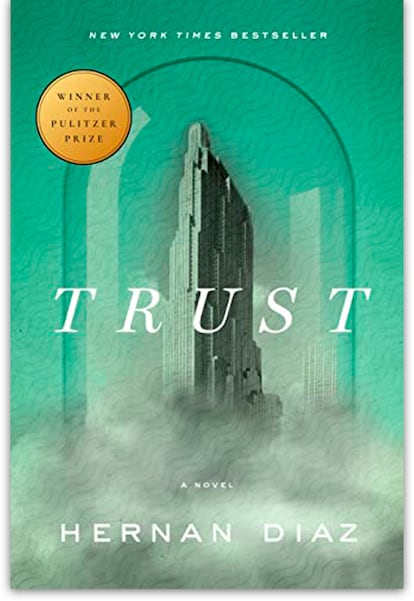
6) Here in Berlin, by Christina García (Counterpoint Press, 2018)
What at first appears to be a travel diary quickly turns into a unique mosaic of stories torn from the city itself. The only information we know is that the main character, more like a witness simply called the Visitor, is a late middle-aged Cuban- American woman who is traveling to Berlin in search of the shared stories that connect her by her birth on a Caribbean island with the communist Eastern Bloc, encouraged by the stories of a friend, a writer like her. ‘Unoccupied, disconnected, alone, invisible. Somehow, she’d imagined a grander liberation,´ The Visitor sets out to explore Berlin, eavesdropping on conversations and avidly collecting the most extraordinary stories. From that point forward, Here in Berlin becomes a skein of characters and memories shaping the city’s human architecture. As Publishers Weekly remarks in its starred review, ‘With the vividness — and unreliability — of a fevered hallucination, [the characters] tell haunting, and occasionally intersecting, stories that last only a few pages but linger much longer… The novel’s many excellent characters and their stories combine to create a sense of a city where, as an amnesiac photojournalist puts it, the ghosts aren’t confined to cemeteries.´ García is the author of eight novels, including her most recent work, Vanishing Maps (Knopf, 2023).
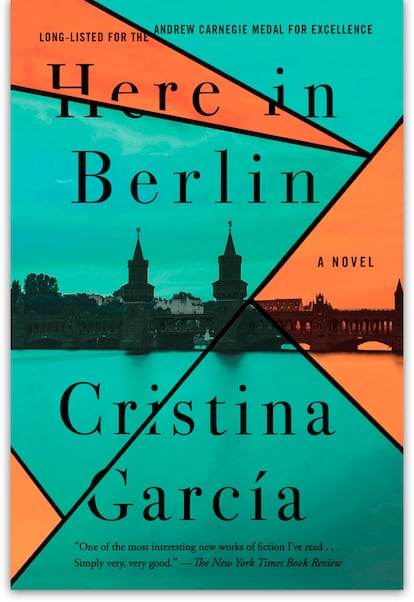
7) Monkey Boy, by Francisco Goldman. (Grove Press, 2021)
About this book, a Pulitzer Prize finalist in 2022, James Wood, wrote for The New Yorker that it is ‘a novel that reads like an autobiographical immersion, a story that travels relentlessly between a difficult present and an unfinished past.´ Wood described Goldman as ‘a natural storyteller — funny, intimate, sarcastic, all-noticing.´ With Monkey Boy, Goldman continues digging into memory, which he has shown he knows how to do with excellent narrative efficiency. Few authors know how to turn their lives into the stuff of literature in such a light-hearted and moving way as Goldman, even though as Wood warns, ‘Invented stories are also inventories of the self; dressed facts; felt, remembered tales.´ In this piece of autofiction, when Goldman alter ago Frankie Goldberg, the offspring of a Jewish-American father and a Guatemalan mother, is about to overcome a love tragedy (read Say Her Name) and rearrange the pieces of his life, several events trigger a chain of reminiscences that take him to relive his childhood and compose this extraordinary portrait of a perennial misfit and mixed - identity individual in a monolithic society. Goldman is the author of five novels and has been a finalist for several prizes besides the Pulitzer, including the PEN/Faulkner prize twice. This is his first novel since the autobiographical and highly recommended bestselling Say Her Name (winner of the 2011 Prix Femina étranger in France).
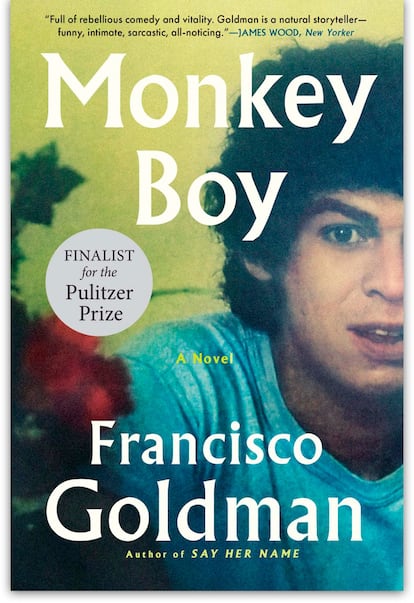
8) Lost Children Archive, by Valeria Luiselli (Knopf, 2019)
The recipient of a 2019 MacArthur Fellowship ‘Genius grant’ and the 2021 Dublin Literary Award winner, Luiselli’s narrative, whether fiction or nonfiction, never disappoints. In a sort of follow-up to her essay Tell Me How It Ends: An Essay in 40 Questions, about the 2014 child immigration crisis, a family of four (‘a hard-core political journalist,’ her husband, a specialist in acustemology, their daughter, and his son from a previous marriage) embarks on a summer road trip across America from New York to Apacheria, the original home of the Apache tribe, in Arizona. With agile prose that sometimes seems like a description of a theatrical scene, which establishes the environment from which the plot will progress, between inventories of sounds and memories, family radiography, and a sentimental political topography, this acoustic novel progresses like a road trip along a lava highway.
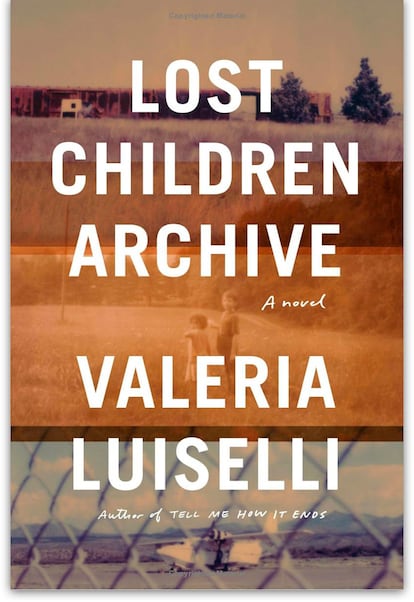
9) Aristotle and Dante Discover the Secrets of the Universe, by Benjamin Alire Sáenz (Simon & Schuster, 2012)
Ari and Dante’s friendship is literally one for the books. Praised as one of Time magazine’s 100 best Young Adult books of all time along with Louisa May Alcott’s Little Women, The Catcher in the Rye by J.D. Salinger, and William Golding’s Lord of the Flies, the book is a work of historical fiction set in the late 1980s in El Paso, Texas and is 15-year-old Aristotle (Ari) Mendoza’s first-person account of the summer of 1987 and the improbable friendship that started at the edge of a pool when he meets Dante, a funny, focused, fierce and mysterious boy ‘in a universe full of mysteries.’ The critically acclaimed, multiple award-winning Aristotle and Dante Discover the Secrets of the Universe and its sequel Aristotle and Dante Dive into the Waters of the World are now available in one collectible paperback boxed set. A film adaptation starring Eva Longoria, Eugenio Derbez, and Isabella Gomez premiered at the 47th International Toronto Film Festival’s Discovery section and is scheduled to be theatrically released in the United States in September 2023.
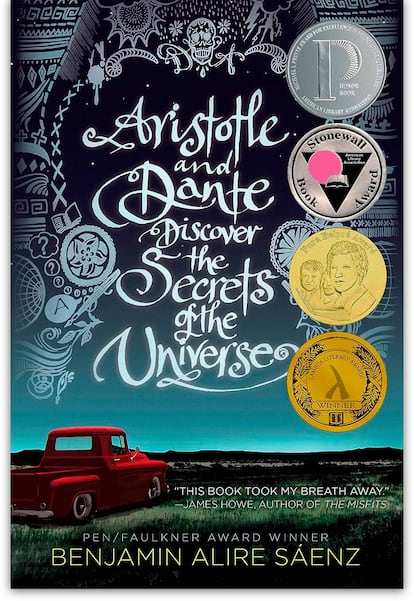
10) We the Animals, by Justin Torres (Mariner Books, 2012)
This bildungsroman follows 10-year-old Jonah’s relationship with his older brothers Manny and Joel, ‘three little kings locked in a feud for more,’ three little savages overflowing with desires and thirst for adventure and expectations. All three grew up in rural upstate New York in a mixed-raced home during the 1980s, with a strict, funny, and abusive Puerto Rican father and a loving, absent-minded, and frequently depressed mother. A poetic and bucolic yet crude childhood recounted through thrilling vignettes, the opera prima of Justin Torres won the VCU Cabell First Novelist Award, is translated into 15 languages and was adapted into a feature film in 2018, directed by Jeremiah Zagar, available to stream on Netflix (https://www.netflix.com/title/80241304). His second novel, Blackouts, published by Farrar, Straus, and Giroux, will be out later this year.
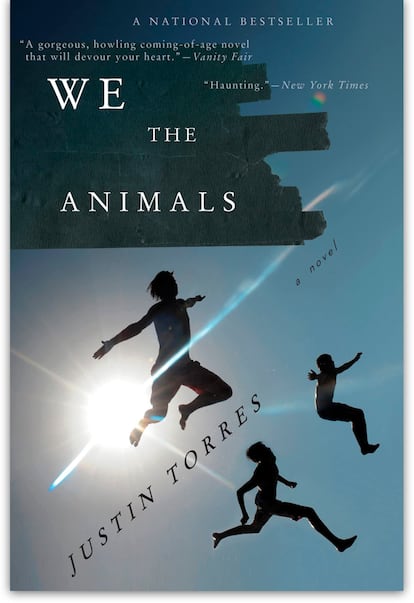
Sign up for our weekly newsletter to get more English-language news coverage from EL PAÍS USA Edition